#still blown away by the reception this little passion project that I do in my free time has gotten
Text

Hello all! Sorry for the lack of an update this week! I had a trip to visit family this past weekend and instead of stressing out and risking the dreaded burnout to keep to the schedule, we'll just be skipping this one!
We'll pick right back up with the next page on April 22- see you then!
#pokemon fancomic#pokemon trainer oc#umbreon#hisuian typhlosion#unown#on an unrelated note#I did some figuring and it looks like chapter 2 will be wrapping up right at the 1-year mark for the start of the comic!#Kinda want to do something special to commemorate#but not sure what yet#I ALSO want to do something for when we hit 1000 followers#because um wow#we're not that far off???#idk we'll see lol#still blown away by the reception this little passion project that I do in my free time has gotten#thanks a TON to everyone who's followed and shared!
236 notes
·
View notes
Photo
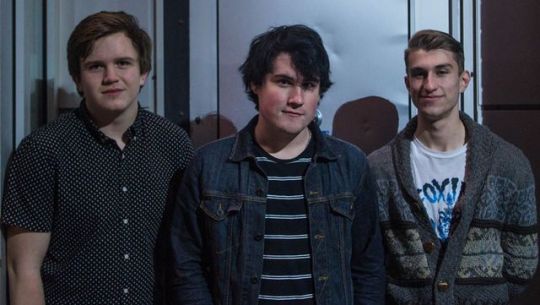
SPACE COYOTE
Space Coyote (SC) is Ashton Cavanagh (AC), Paddy Greene (PG) and Ryan Dempsey (RD). The indie-rock band, who occasionally incorporate flute and brass, released their debut EP You’re Living in the Past in December 2018. Read on about their love of Midwest Emo, their favourite parts off the new release, and of course their thoughts on Spider-Man.
VITALS
Facebook: https://www.facebook.com/spacecoyoteband/
Instagram: https://www.instagram.com/spacecoyoteband/
Twitter: https://twitter.com/spacecoyoteott
BandCamp: https://spacecoyoteband.bandcamp.com/
Latest Release: You’re Living in the Past (EP, Dec 2018)
Upcoming Shows:
Saturday, April 27 - My Friend PJ & Space Coyote. Queen St. Fare, Ottawa, ON.
SA: How did Space Coyote start as a band?
SC: Ryan was fresh out of the pop-punk band “Remember the Arcadians” and was looking for a new project back in late 2016. It just so happened that Ashton was also fresh out of his old emo band “Bankshot”. The two knew each other from occasionally playing shows on the same bill with their old bands so Ryan messaged Ashton with their similar musical interests in mind.
We jammed a few times and honestly it was pretty awkward and not very good, haha. Two or three talented but uninterested bassists later, then high schooler Ryan finally turned to a trumpet player in the school's band that he was in. Fortunately, this trumpet player (Paddy) enjoyed similar music, and played guitar outside of school so Ryan convinced him to learn bass. Months of on and off jamming in between everyone's schooling led to writing and recording the recently released EP “You’re Living in the Past” with Scoreboard Recordings.
SA: Who are your biggest influences, musically or otherwise?
SC: We all started off being inspired by Midwest Emo music (e.g. American Football, Cap’n Jazz, Mineral, Sunny Day Real Estate, The Appleseed Cast) and then took more inspiration from the Emo Revival scene (e.g. Foxing, Tiny Moving Parts, Modern Baseball, Snowing). Ryan and Paddy share a love for Jazz and Paddy and Ashton share a love for experimental music. Lyrically, Ashton draws from folk music and singer songwriter with direct metaphorical lines. (e.g. Elliott Smith, Conor Oberst, Nick Drake, Bob Dylan, Mount Eerie, The Microphones)
SA: Thus far in your career, what has been your biggest success?
SC: Honestly, we’ve been blown away by the warm reception we’ve received from the music community in Ottawa when playing shows and in general. Playing shows and getting our music out there has enabled us to meet some amazing and like minded people in the music scene, who have helped us along the way. More specifically, our track Homebody has received many compliments so we're very proud of the stuff we've created.
SA: On the other hand, what is the biggest challenge you've faced, and how have you dealt with it?
SC: We all live far apart from each other so practices and gigs have been hard to organize since day one. We have be very diligent to make sure the band keeps going. Additionally, with everyone in post-secondary and secondary schools, it can be hard to find the time to get together. Ashton’s car is also horrendous bucket of bolts, which makes getting to Stittsville (where we practice) from Merrickville slightly more than a jaunt and a half.
SA: How do you approach the songwriting process?
SC: Ashton typically writes a skeleton of a song with a basic structure of rhythm guitar and vocals. He then usually brings it to the jury of Paddy and Ryan for their approval. If it fits our sound enough and actually sounds better as a full band, we then work on fleshing it out more. Ryan tries to find drum parts that complement the music and tie everything together. Paddy then writes bass parts, as well as occasional lead guitar, piano, horns and backing vocals. Ashton writes the majority of the lyrics with occasional creative input from Paddy if the song is about something they both have experienced. All three of us add inputs to the specific structure of the tunes.
(Sidenote: the flute part in Running Red Lights arose when Ashton said “This needs a flute part, something like:” then proceeded to sing a line. Ryan then played that part on flute, and it was finalized.)
SA: What are your thoughts on the Ottawa music scene?
SC: It's a really great community. We meet unforgettable people at every show, without fail, and always have a great time. It's really easy to enjoy yourself when everyone around you is kind and having a common passion, bringing everyone together.
SA: If you had to choose, what is your favourite moment off of “You’re Living in the Past” and why?
AC: I’ve always loved the instrumental with trumpet at end of Homebody. Out of parts I’ve written I’m decently proud of the way the two lead guitar lines mesh on the second verse of January. Lyrically, the second verse of Norman! You’re Out!
RD: I really like the way the first verse of Norman portrays a sense of dreary hopelessness, mostly by the timbre of the vocals and by the imperfect movement of the melody. The way the piano ties it all together by the end adding major tonality kind of adds hope and I really enjoy that. The gang vocals at the end of Homebody are also a really fun ending and were really fun to record too.
PG: The drum opening of Static is a cool start to the EP and the piano at the end of Norman! You’re Out was really enjoyable to write. Both are quite memorable for me.
SA: Do you guys love Spider-man genuinely, or jokingly? What is it about Spider-Man that inspires you so much?
SC: 99% genuinely, 1% jokingly.
RD: For me, I just love Spider-Man because he's the most down to earth superhero. He's got grades to worry about, a job, a love life, his aunt May to worry to about, and all the usual yet considerable struggles of an average kid. With all this on his shoulders, he still chooses to use his powers for good and add more to his plate because it's the right thing. There can honestly be something learned from his sense of responsibility. On the other hand, he screws up like anyone else--he's not perfect, and he knows it. There's something great about the genuineness of it. The Sam Raimi trilogy captured this pretty well (except for the third) and honestly their cheesiness is part of the charm. His powers are also, simply put, fun. (The meme videos are great too).
AC: Yeah, what he said. Also, those Sam Raimi movies were my entire childhood and I’ll fight anyone who takes a shit on my childhood by saying the Andrew Garfield ones are better. I love em completely unironically (except 3 I probably do love that ironically).
PG: Little of both, they're fun stories but can be a bit cheesy at times.
#spacecoyote#yourelivinginthepast#scoreboardrecordings#americanfootball#midwestemo#newmusic#livemusic#ottawa#gatineau#queenstfare#interview#q&a#foxing#tinymovingparts#nickdrake#conor oberst#samraimi#spiderman#andrewgarfield
0 notes
Photo
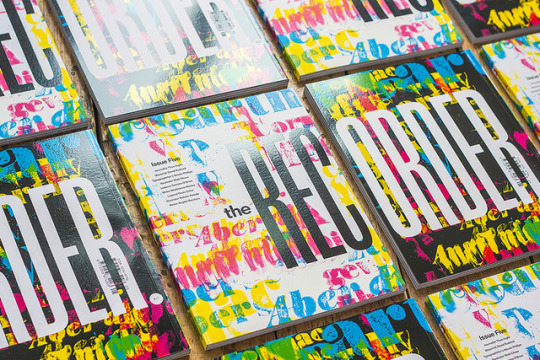


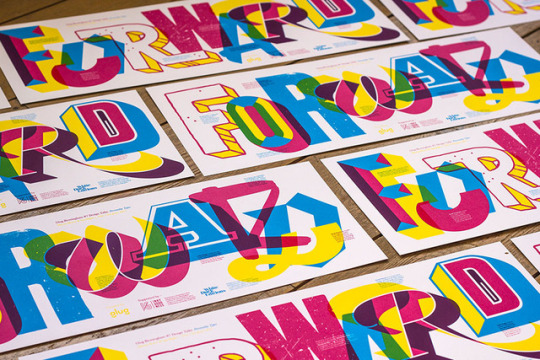

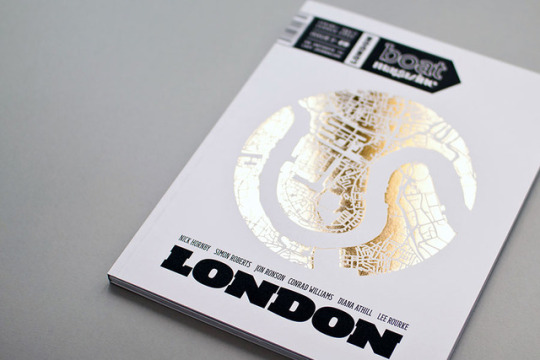
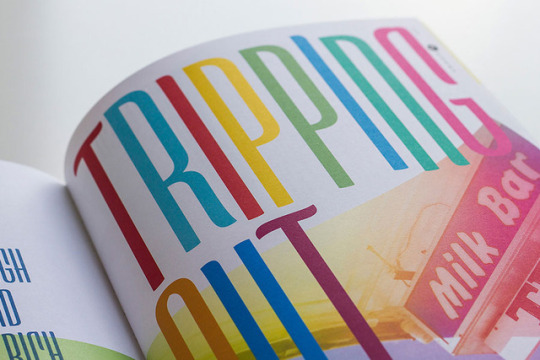

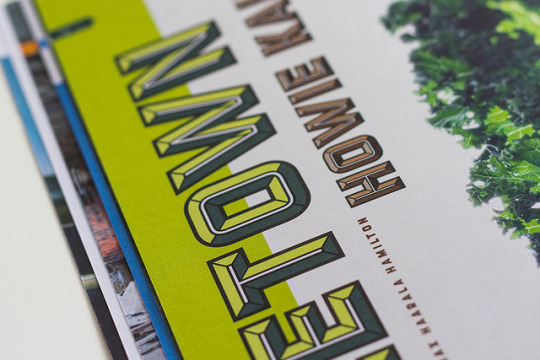
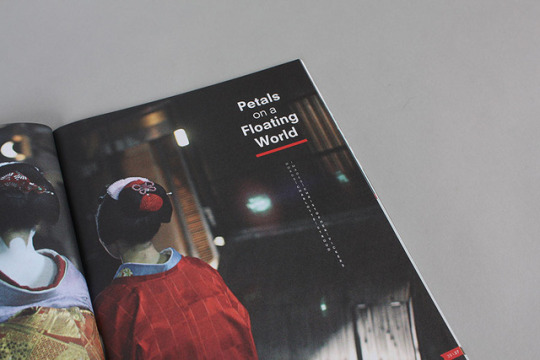
20.03.18
Luke Tonge, Everybody; Everybody, Luke Tonge.
It’s unlikely that anyone reading this isn’t already acquainted with the name Luke Tonge. In the decade since he left Falmouth University with a BA in graphic design, Luke has carved out a unique space for himself in the UK’s design scene; managing the art direction and design of hugely popular independent magazines like Boat and Monotype’s Recorder, getting his hands dirty in the mucky world of design journalism for FormFiftyFive, and just generally being a friendly presence at industry events up and down the country—and all within the precious few hours available to him on evenings and weekends.
After ten years of squeezing all of this in around an agency day job, in January of 2018 Luke decided to become the master and commander of his working life and go freelance, so we stopped by to see if it was going plain sailing...
Describe what you do in the simplest way possible.
'Graphic Design'
(I try to arrange words & pictures well)
A bit more accurately, I'm a recently-turned-freelance graphic designer based in Birmingham, happily splitting my time between branding and editorial projects, teaching two days a week at BCU, and helping pull together the forthcoming inaugural Birmingham Design Festival.
And what were you doing before that?
Corporate design by day, mostly for international FMCG clients, at a large marketing and advertising agency in the Jewellery Quarter of Birmingham. My freelance practice by night—mostly magazine art-direction and design—plus some brand identity projects.
How long did it take you to make the leap to doing your own thing?
Too long! I probably overstayed my welcome in the agency I left last year. I loved aspects of studio life—having a clear role, looking after a team, the stability of turning up to find work waiting for me every day—but the politics got the better of me in the end, so once we'd bought a house and renovated it last year, my wife Tash and I made the decision it was time for me to jump into the deep end of freelance design! It had been in the works for about 18 months, so it was a big relief.
Leaving university in 2007, I knew I wanted agency experience as I had so many practical and commercial knowledge gaps I wanted to fill. I spent three years in my first job, and then almost seven in my last—so almost a decade of very commercial environments and experience—during which time I went from a Junior to Senior 'Creative'. I recognise, however, that I'm fortunate both jobs permitted me enough freedom to take on freelance projects outside of work hours, which kept me satisfied and enthused about design.
What’s been the biggest positive of freelance life so far?
I'd have to say its the really obvious lifestyle stuff: being able to head home early and avoid traffic, work from home if need be, take a day off at short notice etc. While this stuff isn't particularly glamorous, being in control of your own time is a huge change and a relief.
And the biggest negative?
Honestly I'm a cliché; it has been the money. I know it’s possible to make a small fortune freelancing if you're savvy and well connected, and I'm not complaining because I've been busy since I took the leap, but I misjudged quite how big a financial cushion would be helpful and was stung with a particularly eye-watering tax bill shortly after starting out. Those 30-day and 45-day payment terms take some getting used to! But I think now I'm a few months in, things are starting to make more sense.
How’s the invoice-chasing aspect of it working out?
I sometimes joke about how I'm now a professional emailer, and there is some truth to that. Admin is taking up a HUGE whack of my time; invoicing, PO's, proposals, interviews, the list of non-design tasks seems never ending! In terms of getting clients to pay up, its early days, so I wouldn't like to say its all plain sailing, but I'm learning to ask for a percentage upfront, and also increase late fees, so I'm thinking those things will help eliminate time wasters and make sure everyone involved respects each other.
Going freelance has obviously freed up some time for you to take on new exciting initiatives like the Birmingham Design Festival. Tell me about that…
The truth is I've always been busy with side gigs and events have been a part of that. Being invited to help out with curating a type-special Glug in Birmingham last year and seeing the warmth with which our corner of the design community received it definitely made me more receptive to the idea of taking things up a level this year with BDF.
Running a four-day design festival is, it turns out, incredibly hard work! We've decided to go the easy route (not) with about 18 venues. Fortunately, I'm one part of a dedicated and delightful team of 15 friends (old and new) in Brum who have coalesced to make it a reality.
Dan Alcorn approached me last Summer with a vision for a 'proper' design festival in Birmingham and we bonded over the possibilities of such an event, pooling our connections and ideas. We recently announced our incredible speaker line-up and have a very busy three months ahead of us in the run-up to the festival.
Why Brum, why now?
Why *not* Brum, why *not* now? I know you don't mean anything snide by this, but there's an underlying perception of Birmingham, both outside and inside the Midlands, that is one of slight disappointment or mild under-performance. I'm not here to debate how deserved that is, but as a fairly recent incomer to the region (8 years) I've just been blown away by the honesty and pride there is here, and the determination.
Being the perpetual underdog has its upsides of course because expectations are low and we've not got any obvious competition. The creative scene here in Brum is absolutely fizzing with potential and action. From TEDxBrum and the Impact Hub to Badego and Canvas Conference, from Provide and Rope Press to STEAMhouse and Medicine Gallery, from PHORM and Seven9 Signs, to the Electric Cinema and The Mockingbird—so there's a heap of exciting stuff happening we're keen to plug into, champion and utilise. We also don't feel like we're stepping on any toes which is important, and those events which could be seen as rivals are already our friends, cheering us on (and advising us) from a distance.
How would you describe the creative community in Birmingham?
Passionate. Plucky. Eager. Hungry. Hard-working. Fun. Feisty. Scrappy. A little skeptical too, at times, and still suffering from a lack of togetherness that is perhaps a legacy of agency rivalries of old. In short, ripe for an event like BDF!
You go to a lot of creative conferences. What have they taught you about putting on your own, and what traps have you been careful not to fall into?
I've been fortunate to attend quite a few conferences, events and festivals over the years, both as just a regular attendee, covering them as press (for FormFiftyFive) and also more recently as a speaker. I think in our increasingly freelance-leaning industry with a screen-obsessed culture there's still a huge place for physical meet-ups and events. Add into the mix some inspiring and interesting talks at affordable prices and you've got a great excuse for a day or two off work!
In terms of my learning from events, a few things spring to mind. The Cheltenham Design Festival taught me about the importance of diversity in speaker line-ups and how successful a 'smaller' start-up festival can be. Years of attending the MagCulture Modern Magazine conference showed me the value of keeping things simple and having a great team to help the execution. Lastly, BCN>MCR run by my pal Dave up in Manchester taught me the value of great venues and really beautiful promotional material.
The biggest trap I think (touch wood) we've avoided so far is chasing after speakers who we know to be unreliable and building things around them. Having been to events with big-name speakers who've dropped out on the day, I know how disappointing that can be, so we're spreading the risk nicely over a programme of brilliant and tested speakers.
What’s next on the Luke Tonge big freelance opportunity wishlist?
I'd LOVE a new magazine or editorial project to sink my teeth into—they're usually meaty, enjoyable and satisfying things that have a lot of design-time in them, and a big payoff at the end when it’s finished. I'm also learning that helping businesses, charities and brands with their identity is my real forte, and that kind of work is becoming my bread and butter. I love the process of creating a brand and working closely with a client to deliver something useful and impactful. Those jobs are even more enjoyable when the subject matter is exciting, or the client brave. But I have a sneaking suspicion that much of the next three months is going to be spent making sure BDF2018 is as good as we can possibly make it.
0 notes